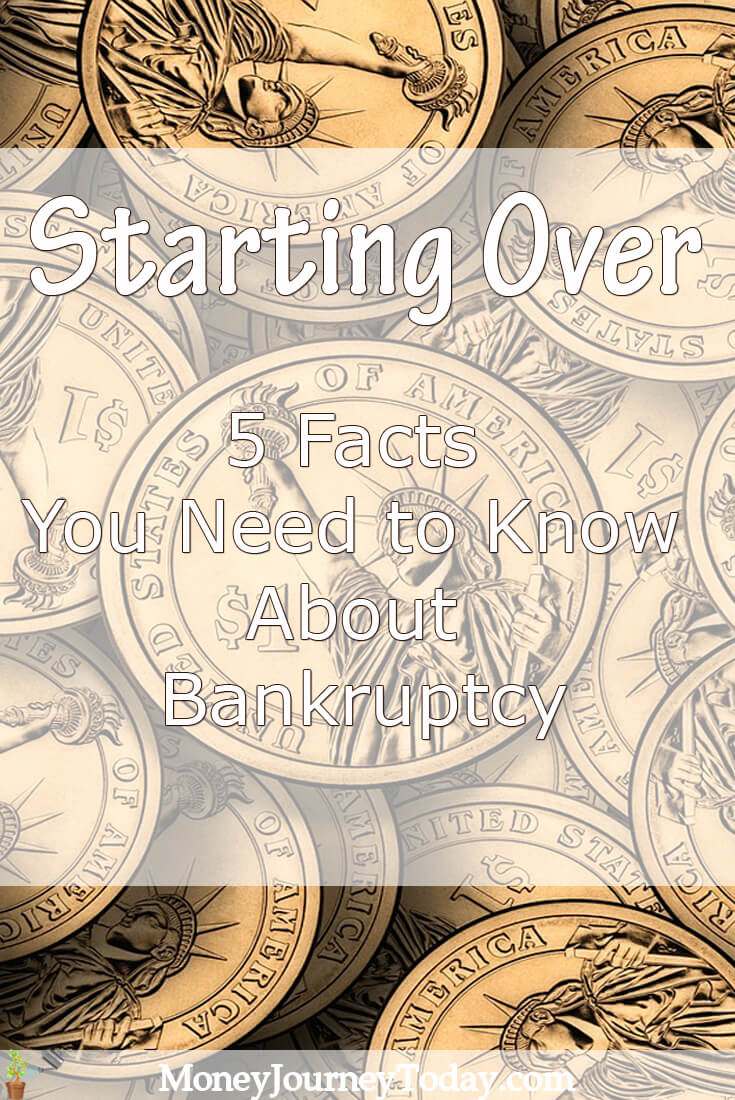Are you considering filing for bankruptcy?
While it offers you a fresh start financially, there are several other issues for you to take into account.
These five bankruptcy-related facts will help you decide if filing for bankruptcy is the right move for you.

There are different types of bankruptcy
Of the six types of bankruptcy, the two which apply to individuals are the ones we hear about most often: Chapter 7 and Chapter 13 bankruptcy.
In Chapter 7 or liquidation bankruptcy, you can have most of your debts discharged but you may have to sell most of your assets to cover as much of the debt as you can.
If you have sufficient income, a Chapter 13 or reorganization bankruptcy gives you the chance to reorganize your debts with a longer period to repay them, usually three to five years.
Not all responsibilities can be discharged
Bankruptcy cannot make ALL your debts go away. You will still be required to pay child support; alimony; and certain taxes. Also, criminal fines, most student loans, and some court restitution orders still stand after you declare bankruptcy.
Secured loans, such as a mortgage and car loans, cannot be discharged by bankruptcy. You may choose to relinquish the property to the financial institution and walk away from the debt owed.
A bankruptcy stays on your credit report for up to ten years
A bankruptcy can devastate your credit score, which might not be such a big deal for you. Chances are that if you are considering bankruptcy, then your credit score is already in pretty bad shape.
Chapter 13 and Chapter 7 bankruptcies stay on your credit report for 10 and 7 years, respectively. Bankruptcy makes it difficult for you to get new credit and to rent an apartment or house. You will also face increased insurance premiums and higher interest rates.
There will be attorney and administrative fees to pay
While you can file for bankruptcy on your own, it is never advisable to do so. The process is far too complicated with too many options and procedures. An experienced bankruptcy attorney can help and will charge fees according to the type of bankruptcy you file for – Chapter 13 bankruptcy typically draws higher amounts.
There will also be administrative court fees which are based on the type of bankruptcy, amendment requests and documents being filed. The charges are usually nominal but they add up over time.
There are alternatives to bankruptcy
Bankruptcy may not be the best option for you at this time. Other possibilities include debt consolidation, working with a credit counselling agency and negotiating with your creditors to create a debt repayment plan.
Most law firms that specialize in handling bankruptcy filings like can counsel you on the bankruptcy alternatives you can consider.
Bankruptcy may be the opportunity you need to start afresh. The process and its results are not as cut and dried, however, as most persons think. Give your options careful thought and discuss how bankruptcy will affect you with an attorney who specializes in the field.

[…] which have never wound up or declared bankruptcy can tender their bids. Those who have declared bankruptcy either in court or through an arrangement […]
[…] bankruptcy – Although not ideal, declaring bankruptcy could help you get out of a difficult underwater mortgage […]